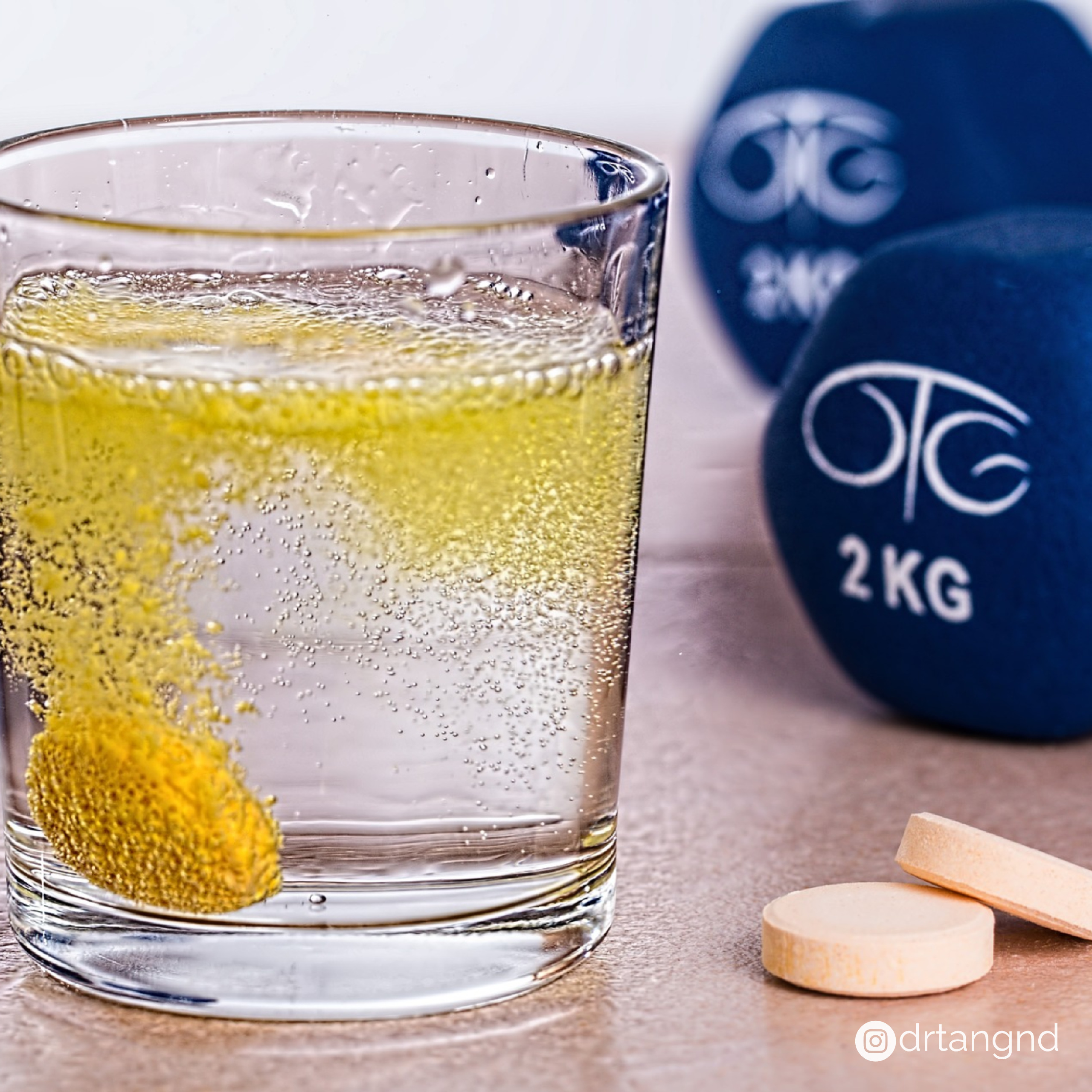Gut Health in Athletes – The Missing Link to Optimizing Performance
Gastrointestinal (GI) complaints in athletes can include vomiting, diarrhea, cramping, bloating, abdominal pain, and everything in between. These are very common during training and competitions – but why? Athletes work hard to fine tune their “machine” of a body, so they should be “stronger” than the average population, right? It is exactly because of the hard work they put into their goals that makes them more susceptible to gut issues. Strenuous exercise and dehydration influence muscle glycogen depletion and puts the athlete at risk for gut ischemia (reduced blood flow to the intestines) [1]. This is because there is a redistribution of blood flow from your viscera to your skeletal muscle, brain, heart and lungs [1].
Also, the stress of heat and oxidative damage during exercise (particular high intensity exercise) disrupts the tight junctions in your gut lining [2]. Your intestines have tight junctions that keep anything harmful that you ingest from entering directly into your bloodstream. In fact, most of our immune system is located in our gut, because we are constantly introducing foreign material into our system through the GI tract. The term “leaky gut” describes one that has increased permeability (therefore decreased protection, if you want to describe it that way) due to inflammation and damage. A leaky gut means lost nutrients due to impaired absorption, increased immune activation [3], and increased inflammation, which all leads to (you guessed it): decreased performance.
Decrease food sensitivities
- Avoiding food sensitivities help to decrease inflammation and allows your gut time to heal. This is the #1 step to optimizing performance
- Sometimes it’s not easy to recognize what these are – try paying attention to how you feel after you eat certain foods. Particular signs of having sensitivities include feeling more fatigued/difficulty concentrating, getting bloated, having constipation/diarrhea, body pains, and presence of skin rashes/acne
- Your naturopathic doctor may suggest Food Sensitivity Testing to figure out which are the biggest offenders if it is not clear
Eliminate inflammatory foods
- Use low fructose gels/electrolytes (see my handout for a healthier homemade electrolyte recipe)
- Dairy, gluten, and processed sugar are often the biggest offenders here
Sometimes the two above are enough to decrease GI concerns
Look into additional supplementation
- This is sometimes necessary if the level of damage is not correctable by simply avoiding offending foods
- Gut healing and supplementation should always be done under the supervision of a naturopathic doctor, as the type and dosage of supplement is individual to your history and needs
- A common supplement used is glutamine to decrease intestinal permeability and enhance the integrity of your gut lining [4]
- A probiotic may also be warranted to restore good gut flora and help you absorb nutrients better [5,6]
- Others that your naturopathic doctor may consider are curcumin and fish oil to help decrease inflammation and assist with healing
Manage stress
- Both physical, mental, and emotional (because holistic health is the best health)
- Stress influences your hormones and is related to insulin balance, and can definitely increase inflammation in your body
- This means decreasing any physical ailments you may have, identifying what your stressors are, having healthy coping mechanisms, and implementing those daily to increase your quality of life
Your gut is by far one of the most integrated systems in your body, with links to your brain, your immune system, your nervous system, your behaviour, your hormones, and so forth and so forth. It is easy to see why optimizing gut health translates into optimizing performance. The fact that a “leakier” gut leads to impaired nutrient absorption alone is enough reason to warrant attention, due to the increased demand of an athlete.
Stay tuned for my next article, where I’ll be writing about common nutrient deficiencies in athletes.
Keep up to date by following me on Instagram, Facebook, and Twitter (@drtangnd).
- de Oliveira EP, Burini RC. (2011). Food-dependent, exercise-induced gastrointestinal distress. J Int Soc Sports Nutr. 8:12. doi: 10.1186/1550-2783-8-12.
- Zuhl M, Schneider S, Lanphere K, Conn C, Dokladny K, Moseley P. (2014). Exercise regulation of intestinal tight junction proteins. Br J Sports Med. 48(12):980-6. doi: 10.1136/bjsports-2012-091585. Epub 2012 Nov 7.
- Jeukendrup AE, Vet-Joop K, Sturk A, Stegen JH, Senden J, Saris WH, Wagenmakers AJ. (2000). Relationship between gastro-intestinal complaints and endotoxaemia, cytokine release and the acute-phase reaction during and after a long-distance triathlon in highly trained men. Clin Sci (Lond). 98(1):47-55.
- Pugh JN, Sage S, Hutson M, Doran DA, Fleming SC, Highton J, Morton JP, Close GL. (2017). Glutamine supplementation reduces markers of intestinal permeability during running in the heat in a dose-dependent manner. Eur J Appl Physiol. 117(12):2569-2577. doi: 10.1007/s00421-017-3744-4. Epub 2017 Oct 20.
- Lamprecht M, Frauwallner A. (2012). Exercise, intestinal barrier dysfunction and probiotic supplementation. Med Sport Sci. 59:47-56. doi: 10.1159/000342169. Epub 2012 Oct 15.
- Clark A, Mach N. (2016). Exercise-induced stress behavior, gut-microbiota-brain axis and diet: a systematic review for athletes. J Int Soc Sports Nutr. 13:43. eCollection 2016.

